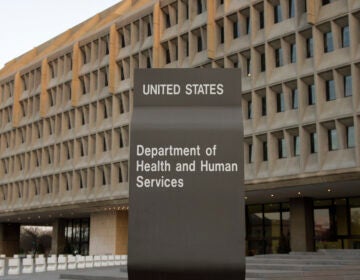Delaware health insurers fined $1.3M for discriminating against patients with mental health and addiction issues
Delaware issues fines to insurers for not treating people with mental health or substance abuse issues as fairly as they treat others.
Listen 1:35
(Chinnapong/BigStock)
Delaware regulators have taken steps to ensure that health care insurers treat people with mental health and substance abuse issues as fairly as they treat people getting treated for physical ailments, issuing $1.3 million in fines the last two years.
The penalties are the result of a 2018 law that authorizes the state insurance department to conduct mental health parity examinations so discriminatory actions can be found and stopped.
Companies were fined over issues such as the cost of prescription drugs and delays in getting appropriate treatment or medications such as methadone for opioid addiction. Other issues included failure to provide timely notice of whether a claim was accepted or denied, or to acknowledge receipt of a grievance.
“Whether it’s substance abuse or mental health treatment, it can be very expensive, as well as the prescription drugs, for these types of issues,’’ said Insurance Commissioner Trinidad Navarro, a second-term Democrat. “So it’s easy for them, in many cases, to deny because the individuals often don’t have an advocate or have someone who can step up and make the argument that they shouldn’t be denied.”
The companies and their fines are:
- Cigna – $382,000
- Highmark Blue Cross Blue Shield Delaware – $299,000
- Aetna – $298,000
- United Health Care – $253,000
- Optimum Choice – $100,000
All the companies signed consent orders, agreeing not to contest the fines and to make the payments to the state. The money goes into the general fund — not back to the patient — but Navarro stressed that the department also investigates complaints on behalf of individual patients who call the Consumer Services Division at 800-282-8611.
Navarro said the reviews help regulators “make sure that residents who are seeking care for mental health treatment or substance abuse are not facing higher costs or greater barriers to care than those who have been injured on the softball field or have physical ailments. And when we find out that inequities exist, we hold them accountable.”
Navarro said the reviews will continue, but pointed out that companies have agreed to make changes to be in compliance and to be equitable.
“We expect that these companies will make changes,’’ he said, “so that these prohibitive practices don’t continue to happen.”
Emily Vera, executive director of the Mental Health Association in Delaware, says barriers such as waiting to have treatment pre-authorized — known as a “pre-auth” — can be devastating to patients in crisis.

“If you have depression, for example, that might affect your motivation,” Vera told WHYY News. “And so when you finally have a moment of motivation to go and try and get some help and then you run into something like a pre-auth, it can be so discouraging. Or a person who’s battling active addiction might have a window of time of clarity where they’re ready to go and get help, and if it’s not right there, that’s a really big missed opportunity.”
”And then down the road, if you keep delaying and delaying, there can be much bigger health consequences, but also treatments are going to become more expensive and more intense. And so it doesn’t even make economic sense to have these barriers.”
Kristine Grow, spokesperson for America’s Health Insurance Plans, a national trade association, would not comment on the fines levied in Delaware, but said insurers have been working to ensure equitable access and treatment.
“There’s still a lot of barriers that remain,’’ she said, noting a dearth of mental health practitioners and treatment programs across the nation. “We are working very hard to find solutions.”
Lt. Gov. Bethany Hall-Long, who heads the state’s Behavioral Health Consortium, said one goal is paramount.
“Persons should be able to access treatment based on the acuity and severity of their health condition or recovery needs and should never be denied treatment due to insurance practices driven by cost and quotas,’’ she said.
Vera said the bottom line is that inequities should not exist.
“There’s limitations that shouldn’t be there,’’ she said. “I mean, it doesn’t make sense for your mental health. Of course, that’s part of your overall physical health. The brain is part of the body. It’s not a separate issue. It’s all part of your health.”

Get daily updates from WHYY News!
WHYY is your source for fact-based, in-depth journalism and information. As a nonprofit organization, we rely on financial support from readers like you. Please give today.







